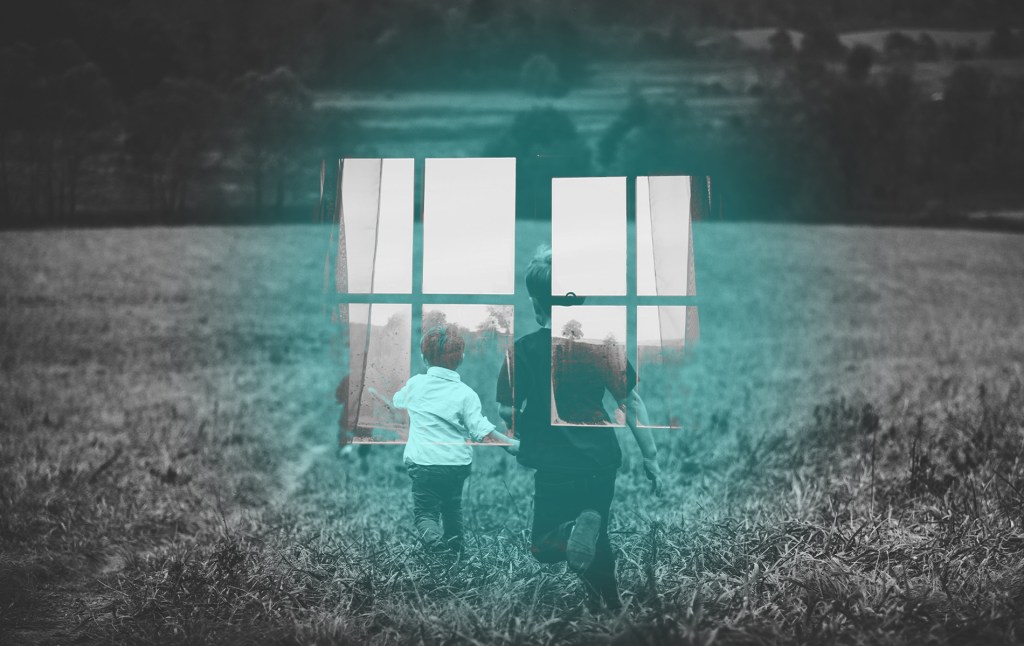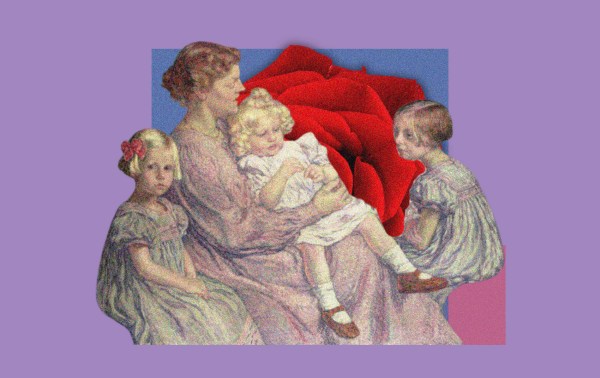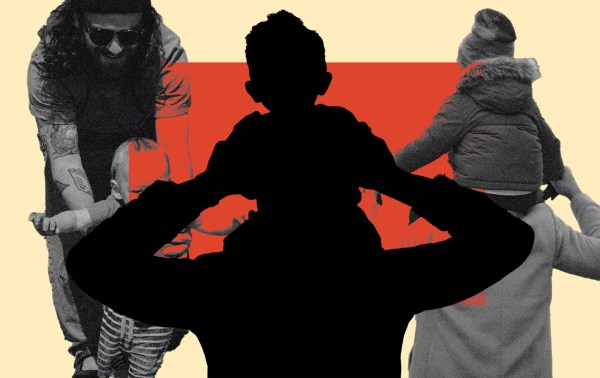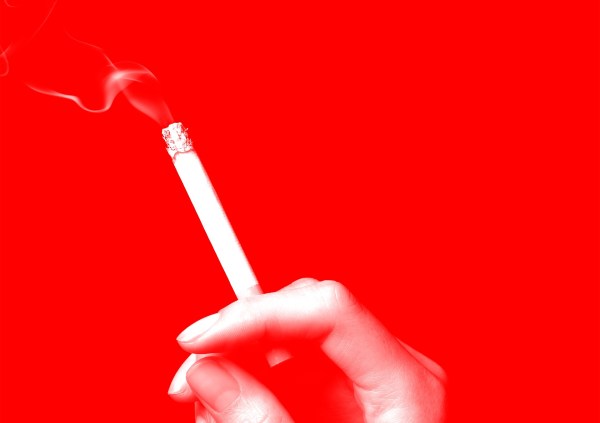John Tyler, the 10th president of these United States, was born in 1790, when Mozart was still alive.
His grandson just passed away in late May of this year.
Yes, let’s do that math.
The late Harrison Ruffin Tyler, a chemical engineer and preserver of historical sites, was born in 1928 to 65-year-old Lyon Gardiner Tyler Sr., who had been president of the College of William & Mary and who was born in 1853, one of 15 children of the man who was by that time former president John Tyler. History is very short, from a certain point of view: When President Tyler’s father was born, the English were busy beheading Jacobite rebels at the Tower.
These Tylers were men of “commendable vigor,” as the diplomats used to put it. You know the type: J.S. Bach fathered 20 children (the times being what they were, only half lived to adulthood) including a daughter at the age of 57—and being 57 in 1742 was not like being 57 in 2025. Mick Jagger and Robert de Niro had children in their 70s. Saul Bellow was still fathering children in his 80s. These aren’t figures of biblical times, or even colonial times, but figures from our times—Saul Bellow’s son Adam was the editor of one of my books.
My first son was born just a few months before I turned 50.
So I did what you do at such a time and sold my motorcycle. I had been, for much of my life, a dedicated motorcyclist. I never had a real accident, and I told myself, way back when I started riding as a young man, that I’d stay on the bike until I turned 50 or had children. So, my last bike (a really fun one!) moved on down the road without me. There was a kind of irony in that: Motorcycling is an excellent way to die young, but giving up my bike was, in a weird way, my first real concrete concession to mortality. The moral center of your life really does move on when you take that first baby home from the hospital. You don’t stop being you, you don’t stop having fun and caring about the things you care about, and you don’t suddenly turn into some kind of saintly and stoic other-directed transcendent being. But it’s no longer about you. At least not in the way it was before.
Three more boys joined him all at once—my wife is an overachiever—about 20 months later. So, I’m 52 and have four boys ages 2 and under.
I do feel like an old dad sometimes, of course. (Because, in the great sweep of human history, I am.) But I do not feel as old as I might have: I’m in better shape today than I was before my sons were born, which makes a big difference to me and for them. I saw Charles Murray at a wedding reception a while back, and it took him a minute to place me. He was a little embarrassed, but there was no reason to be. “You’re unrecognizable,” he said. “That was the idea,” I replied. (There are good carbs and there are bad carbs, and, as it turns out, Wild Turkey isn’t one of the good ones.) Being in better shape makes it easier to chase the little ones around, and they are getting faster every day. I feel better than pretty good, but when my first son was born, I was a little bit older than Bill Burr was when he got the idea for Old Dads.
I am also a relatively new husband, and so my point of comparison for early fatherhood is the carefree days of … my late 40s. My wife and I did it right, I think: We got our ticket punched at City Hall in Manhattan (Jay Nordlinger was the best man) rather than putting our friends and family through the weird spectacle of a man in his middle 40s and a woman in her middle 30s pretending like they’re just starting life. I wore a blue Brioni suit and took a taxi; she wore a splendid white dress and took the subway, somehow managing to arrive in a fully squared-away state, although she did forget her ID, which meant a mad dash in the late afternoon New York City traffic through a genuinely cinematic summer downpour to show the clerk her driver’s license before he was obliged to trash our paperwork and give us what would have amounted to a preemptive annulment. And then we had lunch with some friends and family and took a pretty good share of the money we might have spent on a ridiculous wedding ceremony and reception and had a rock-star honeymoon: Rome, Tuscany, a few days of glorious inactivity at Villa d’Este overlooking Lake Como, some time at the beach in Nice, etc., going from place to place in a convertible Mercedes. (We also went to Marseille. “Why Marseille?” she asked. “Because it is the Houston of Europe,” I answered. If you know, you know.) We were with friends and family for the first and last parts of the trip, by ourselves in the middle. It was a great indulgence for two people whose private (until now) marital joke is about how generally unromantic we are: “We’ll always have Paris,” said the star-crossed lovers in Casablanca—whereas our version is the more sensible “We’ll always have Zurich.”
It’s not that I am incapable of making a romantic gesture. One day, I was going to the grocery store and she informed me that tulips were in season and asked me to bring some home. Because I am not a fool, I asked for further instruction: How many tulips? “All the tulips!” she exclaimed. She was joking but, if you ask me, tulips are no joking matter, and so I brought home all the tulips, at least, all the tulips at that Whole Foods, buckets and buckets of them. On another occasion, when she was enormously pregnant, nauseated, and dehydrated, she asked for Gatorade. Which flavor? Dumb question. I brought home every flavor of Gatorade on offer. No half measures. But do you know which gesture she always remembers? She told me we needed toilet paper, and I brought home enough for about two years. Why? For the same reason I don’t take $60 out of the ATM or put anything less than a full tank in my truck when I fill it up.
Speaking of which, here’s a travel tip for you: If you’re driving to Lubbock, Texas, from Dallas or Austin or Houston or El Paso or really basically any direction, keep an eye on the fuel gauge. You want to go into the last third or so of that trip with a full tank. Don’t try to push it or stretch it. Stop and fill ’er up. Because it gets very dark and lonely out there in the Big Empty, and it’s not like the more thickly peopled parts of the country where you can expect a 7-Eleven or a Wawa or a Sheetz every few miles. There are stretches where the filling stations are few and far between, and, this being a different and atavistic part of the world, some of them are closed at night.
If you have a 15-gallon tank, you don’t spend those last few miles after the “low fuel” warning light comes on thinking about how wonderfully well those first 14 gallons of premium-plus burned. You’re thinking about that last gallon. And you are anxious. If that last gallon doesn’t get you there, you’re just as stranded with a 15-gallon tank as you would have been with a 10-gallon tank. When you’re out of gas, you’re out of gas.
I am the last gallon in the tank.
I am the marginal parent, and that isn’t me being modest or selling myself short: As any good economist could tell you, the margins are where the big things happen. I’m not a feckless sitcom dad—I can do stuff. I am not helpless, and I am not lazy. I can assemble the furniture and change a diaper and warm up a bottle, kill a spider, bore-sight a rifle, clear a drain, and make a grilled cheese sandwich. I can iron my own shirts if it comes down to it, and I know to take the collar stays out first. I can open jars and lift heavy stuff all day. I know which eggs to buy and that we get two different kinds of mac and cheese. And I’m not the worst guy to have around when this is the view from your living room:

(“I’m sorry, Smokey. You were over the line, that’s a foul.”)
But there are certain realities that simply assert themselves, and one of them is that childcare duties fall disproportionately on mothers. And because we had a bunch of kids all at once—four boys in a year and a half, including identical triplets—we kind of went (to continue the automotive metaphors) from zero to 105 in nothing flat. And there is a difference between what I can do and what I am inclined to do. I can do some pretty high-level husbandry when necessary, but what I am inclined to do falls into three categories: stuff I get paid to do; stuff I absolutely have to do; and stuff I like to do. So, some of the disproportionality is my doing, to be sure.
But most of it is those four little men: As it turns out, the 2-and-under set hasn’t yet got the word that gender roles are meaningless social constructs, and my boys persist in their obdurate belief that mama and papa are not interchangeable “parents.” And, sometimes—a lot of times—only mama will do. When our older boy wakes up crying at 3 a.m., as he still does from time to time, (the triplets may cry for a few minutes when we first put them down, but then they typically lie there looking like toys somebody has dropped, motionless and slightly spooky, and I’ll cop to frequently checking to make sure they are still breathing—which was a real concern for a bit there in the NICU) I can go to him and try to comfort him, and he will have none of it. I’m the guy who reads him 20 books a day and fixes his broken toys and takes him to the “children’s museum” (as it calls itself; it’s basically an indoor playground) where he gets to play in a real fire truck and sit on a real tractor.
And I am the guy who gets him up in the morning, and his three little brothers, too. One of my many blessings in this life is that I sleep well, and, when I wake up, I’m ready to go. Mrs. W prefers a slower morning and a more gradual waking, especially if she has been up two or three times in the night to attend to a child or four. For a while, that meant that I was up around 4:30 a.m. most of the time, which isn’t much of a problem if you get in bed at 8:30 p.m. instead of watching television (it helps that we do not have one) or wading through the malaria swamp of social media (which I do not use). The triplets are sleeping a little longer now, and, so, I stay up a little later and rise a little later—it’s a whole different world when the first digit on the clock is 5 rather than 4, but there is something to be said for each. But, whatever time I get up, the trick is to be at least 20 minutes ahead of the triplets. If I can get up and get their bottles warm and have a few minutes to combobulate myself, chances are excellent that we will have a nice, peaceful morning. Breakfast will be eaten, diapers will be changed, wrestling will occur. (One of my little ones is a vicious ear-puller.) On the other hand: If the Goon Squad is five minutes ahead of me, if I miscalculate the ol’ circadian rhythm by a tiny bit—chaos. My mission between the most wee hours and 7 a.m. or so is: avoid chaos. Keep a lid on it. I aspire to be the Dwight D. Eisenhower of husbands and fathers: actively engaged in managing the challenges of a dangerous and complex world while giving my constituents the impression that nothing is happening, that our common life is dead boring, that I am just out there playing golf and looking reassuring. (Very few things look less reassuring than me trying to play golf, but you smell what I’m cooking here, I trust.)
My wife is the first 14 gallons in the 15-gallon tank. But when she needs that last gallon, she really needs it.
So I am the dawn patrol and, for our older boy, the penultimate parent of the day, taking him through the evening ritual of doing flips on the bed (three to five big flips, landing on his back on one of mama’s soft pillows rather than papa’s extra firm sack of buckwheat, and then a bonus flip, and then a bonus bonus flip, and then, from time to time—meaning pretty much every time—the bonus bonus bonus, which is how I know that he really can count even though he sometimes pretends that he cannot) and then on to bathing, brushing his teeth, and then sprinting naked through the house (him, not me) to his mother, who puts him in his pajamas, reads him his 137th book of the day, and then puts him to bed. He likes a long bath, which gives Mrs. W enough time to bathe the other three, put them to bed, and do some post-dinner cleanup, which, with four little ones, can be … involved. For some reason, she made them spaghetti a few nights ago. I do not think that mistake will be soon repeated.
So, I’m there when I’m needed. And, here’s a little secret: The dawn patrol can be pretty sweet. There is no such thing, really, as identical triplets: They are very, very different little boys and have been since the moment they were born. The most intense of them is usually the first to wake, and he will cry and raise a single fist into the air like Angela Davis. He is rage in toddler form—until I come to get him, at which point he has the most charming, mischievous little smile you could imagine. The oldest triplet (by a minute) dances in his crib when he’s ready to get up. The middle triplet, also the biggest, stays in his customary position—face down, bum up—for about half an hour after the others get up and generally wakes up feeling snuggly (and hungry). We’re getting down to the last of the formula, and they don’t really need it anymore.
But I do. I’m not ready to be done with it.
The other day, I set the middle triplet down in his playroom and instead of sitting down and then pulling himself up, he landed on his feet, stood there for a second, and then toddled off, which is what toddlers do, I guess. That’s the thing about fatherhood that nobody told me: Everybody talks about changing diapers, which isn’t actually a big deal, or missing sleep, which is a bigger deal but far from unbearable. The hard part is that every day—every day—you get something wonderful … and you lose something wonderful. My older boy is about to turn 3, which is hardly on the verge of leaving the nest, but, every day, I look at him and wonder where that baby went. The sad undertone of childhood is that it is, in the end, about giving things up. One day, my older boy isn’t going to want to sit in that fire truck—he’s already moving past it, in fact. One of these days, he’s going to want to read books by himself, and he’s going to put his toys away for good.
And papa is going to fall apart.
Mojo, Obi, E.J., and Jeep—there are four of them, but sometimes it seems like more. It’s like Virtuoso Duets by the great guitarists Christopher Parkening and David Brandon—there are only two guitars, but the effect sometimes seems like more. (I once was a student of Brandon’s, and one of my great regrets is that I did not make a great deal more out of that opportunity.) The whole is more chaotic—and sweeter—than the sum of its parts.
Mojo is just about to turn 3 but (please forgive the proud papa stuff) is often mistaken for an older kid, partly because he is tall for his age but mainly because he is remarkably articulate. We build with Magna-Tiles before dinner many evenings, and, when he is proud of a piece of work, he says: “My structure is elaborate.” And then he starts pulling pieces out: “My structure has become unstable.” He is a funny little man in many ways: He’s perfectly able to eat with a fork and a spoon (and he insists on cloth napkins—don’t try to hand him a paper one if you don’t want to experience the withering scorn of a toddler) but still prefers his water from a baby bottle. Like most fellows his age, he is very insistently a creature of habit. He is Ted Hughes’ hawk:
Nothing has changed since I began.
My eye has permitted no change.
I am going to keep things like this.
But, of course, something has changed since he began.
We brought the triplets home from the hospital one by one, and, by the time we brought home the third, Mojo was looking at us like: “How many of these are there going to be? You can’t bring home every stray, you know. This is getting out of hand.”
Triplets are (where there is modern medical care) typically born premature, labor being induced at the point in the pregnancy when the doctors calculate that the risks of further gestation outweigh its benefits, and that means a stay in the NICU. Our children were born at the nearly unimprovable Presbyterian Hospital in Dallas and cared for by the extraordinarily capable and gracious people there. The NICU is, of course, terrifying, in part because premature newborns sometimes just stop breathing, or their heart rates go off in one direction or another, things like that. What do you do? Your wife is elsewhere getting stitched up and recuperating, and friends and family come and go, and the nurses do their work, and you try to listen as doctors and specialists try to explain to you what is happening and what to expect and, when that stops for a few hours, you sit there in that half-dark room and watch the babies’ vital signs and wonder whether you are really up to it.
I’m still wondering.
Mojo is sweet, sensitive, and an entirely open child. There is no deceit in him. It’s not that he won’t make up stories and tell tall tales (often for his own benefit) which, of course, he does all the time. But, if you ask him whether he’s making something up, he’ll smile sheepishly and answer that of course he is. His feelings are very close to the surface: In one of his early books (he already has outgrown it) there’s a picture of a boy crying after falling and skinning his knee while playing at the park, and Mojo would choke up a little bit every time we got to that page. In another book, there’s an alligator who always is experiencing some kind of bad luck and who at one point accidentally breaks a neighbor’s window with a ball, with the angry neighbor, a bear, leaning out of the window and shaking his fist at the alligator. “He’s a very gwumpy bear,” Mojo says. And I, too, can be a grumpy bear, but, as Mojo reminds me from time to time, it is not my grumpiness that defines me: “You’re not a gwumpy bear,” he says. “You’re a papa bear.”
Yeah, he’s going to get pretty much everything he wants. The real challenge will be exercising discipline over myself, not over him.
The triplets are different, of course. Mojo got us all to himself for the first year and a half of his life, which coincided with the tail end of the COVID era, and we’d had some years of difficulty conceiving a child—so the No. 1 son was No. 1. The triplets, who shared a placenta, have been competing for resources their whole lives, and there simply is no mathematical way that they were going to get the kind of intense, one-on-one focus that Mojo got for his first 20 months or so. On the other hand, Mojo did not have any handy playmates—Pancake, our dachshund, was terrified of him for good reason—whereas the triplets have each other. E.J., the middle and largest of them, is the most affectionate of them but also a little bit of a thug—he’ll grab his brothers by the hair and face plant them on the floor. (Their playroom has a padded mat.) Jeep is aptly nicknamed: He has a talent for climbing into spots he doesn’t belong, and he was the first to go in for repairs, falling and hitting his eyebrow on the edge of a table and needing stitches. (Do you know what they give the littlest ones instead of conventional anesthetic? Ketamine. Jeep took three doses of the stuff and did not stop fighting—and the stick-in-the-mud doctors wouldn’t let me have any at all—but he was really, really relaxed and affectionate the next day.) Obi, the oldest triplet, is silly and happy, a dancer, and he talks more than his two former wombmates, so far.
Mojo will play with his brothers a little bit, and papa is very proud of how he meets the related challenges. When one of his brothers takes one of his toys—and, of course, he doesn’t want that toy or have any interest in it at all until somebody else is playing with it—he does what mama has taught him, informing her or me of the situation, offering his little brother something else to play with, and then gently making the exchange or waiting for it to be made. Some toys are shared, but some things, such as his backpack, are his, and we encourage him to try to be clear about those things. Sharing does not come naturally to him—but, then, he is his father’s son, and very few virtues have ever come to me easily. He can be positively philosophical at times, but he still has 2-year-old tantrums, of course, many of which I find baffling: It’s not just that he wants some water, he also cares intensely about who gets his water for him. (Mama, again.) He believes in Santa Claus and that words—especially the word “anyway”—have magical powers. We have rabbits around the house, and he believes that one of them is Peter from his books. (“Peter” is about nine rabbits, by my count.) A few months ago, Mojo decided that Peter is the Easter Bunny. “I don’t think he is the Easter Bunny,” I said. “But he must know the Easter Bunny. And he’s probably a deputy Easter bunny, at least.” “Yes,” Mojo said, thinking about it. “But he’s the Easter Bunny, anyway.” He also tries to Jedi mind-trick me: “You don’t have to go to work today. You will stay here and play with me.”
(Like I said: pretty much everything he wants.)
I did a very fun podcast with my friend Mona Charen a few weeks ago, during which I repeated an observation I’ve made elsewhere: If my household income doubled, it probably wouldn’t change how we live very much. We’d probably live in the same house (it is a nice house) and I’d wear the same watch (it is a nice watch) and my wife would have the same dresses. We’d have more in our retirement savings, to be sure. I like cars and nice vacations and such, but I don’t long for a Ferrari or feel shorted because we stay in nice hotels instead of having a vacation home somewhere. The only thing I really want that I cannot afford is to fly private whenever I want, and that isn’t a matter of doubling or tripling income but of multiplying it—I don’t know … a thousandfold? And, unless I start writing books about teenage vampires (wrong Kevin Williamson) or boy wizards or something, that isn’t going to happen. Because the world is full of people, some of the comments on the show were bitter: “You’re out of touch!” one said, noting that even a small increase in income would be a big deal to many families. But I’m not out of touch—as hard as I try to be!—and I know that perfectly well. It just doesn’t describe my family. “Privileged!” shouted another, to which I respond: You bet your ass, sunshine. I used to be defensive about that and would go on about how I grew up poor and worked (and work) hard and all that, but the truth is that the world is full of people who have worked harder than me who don’t have a tenth of the good things that have, for whatever reason, come to me.
It is a privilege at 3:20 a.m. and at 4:15 a.m. and when everybody (including Pancake) is howling all at once over dinner and I’m feeling like Alex in A Clockwork Orange. It was a terrifying privilege during a difficult and uncertain pregnancy when, after an unwelcome medical finding, it looked likely that we would lose all three triplets. (Of all the things you want to discuss during a pregnancy, the last of them is mortality rates. But the boys are all fine.) It is a privilege to load my truck up and drive it to the dump every other week or so because we produce such a comic volume of waste and recycling (so many cardboard boxes) that it exceeds what our little town will haul off in a week. Yes, a lot of money goes out the door—but that’s what money is for, and I wouldn’t want Jeff Bezos to starve to death with all that money he’s losing at the Washington Post.
C.S. Lewis wrote a book called Surprised by Joy. Having a similar orientation but a lower kind of mind, my version is Surprised as F-ck by Happiness. A few years ago, I decided that since Americans had made a priest-king cult out of the presidency, we might as well take it all the way into straight-up magic, so I developed a theory of presidential astrology. And I was born under the sign of Nixon—with Nixon rising, to a 49-state landslide—and, that being the case, I am inclined to see the darkness reaching out for the darkness in all things. There are bears out there, and things a lot worse than bears.
Bears I can handle. But, the times being what they are, a man is not called to fight a bear very often. Some men pray for war, or at least a good bar fight, feeling the need to prove themselves. I haven’t been in a fight in a long time, and I didn’t win all of the ones I was in. But that kind of thing is, for the most part, beside the point. What is demanded of husbands and fathers in our time is less dramatic but no less necessary: It is cold out there, and dark, and who knows what is lurking alongside the highway? The road is long, there are miles to go, and there is fuel in the tank, and what I have and must cling to is the hope—far from a certainty—that my best is good enough.










Please note that we at The Dispatch hold ourselves, our work, and our commenters to a higher standard than other places on the internet. We welcome comments that foster genuine debate or discussion—including comments critical of us or our work—but responses that include ad hominem attacks on fellow Dispatch members or are intended to stoke fear and anger may be moderated.
With your membership, you only have the ability to comment on The Morning Dispatch articles. Consider upgrading to join the conversation everywhere.